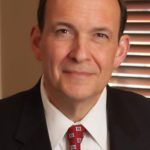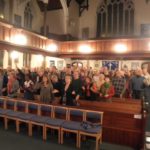The congregation that aims to be biblically directed and informed in its approach to public worship will gather weekly on the Lord’s Day for Bible reading, Bible preaching, Bible praying, Bible singing and biblical observance of the sacraments. These things will be at the core of what they do in public worship. This means the following for biblically-directed congregational services of worship.
They will read the Bible in public worship. Paul told Timothy “give attention to the public reading of Scripture” (1 Tim. 4:13) and so, a worship service influenced by the teaching of Scripture will contain a substantial reading of Scripture (and not just from the sermon text!). The public reading of the Bible has been at the heart of the worship of God since Old Testament times. In the reading of God’s word, He speaks most directly to His people.
They will preach the Bible in public worship. Preaching is God’s prime appointed instrument to build up his church. As Paul said “faith comes by hearing” (Romans 10:14, 17). Faithful biblical preaching is to explain and apply Scripture to the gathered company, believers and unbelievers alike. James Durham put it this way: “This is the great design of all preaching, to bring them within the covenant who are without, and to make those who are within the covenant to walk suitably to it. And as these are never separated on the Lord’s side, so should they never be separated on our side.” This means expository and evangelistic preaching, squarely based in the text of the word of God.
People who appreciate the Bible’s teaching on worship will have a high view of preaching, and little time for the personality driven, theologically void, superficially practical, monologues that pass for preaching today. “From the very beginning the sermon was supposed to be an explanation of the Scripture reading,” says Hughes Old. It “is not just a lecture on some religious subject, it is rather an explanation of a passage of Scripture.” “Preach the word,” Paul tells Timothy (2 Tim 4:2). “Expository, sequential, verse by verse, book by book, preaching through the whole Bible, the ‘whole council of God’ (Acts 20:27), was the practice of many of the church fathers (e.g., Chrysostom, Augustine), all the Reformers and the best of their heirs ever since. The preached word is the central feature of Reformed worship.”
They will pray the Bible in public worship. The Father’s house “is a house of prayer” said Jesus (Matthew 21:13). Our prayers ought to be permeated with the language and thought of Scripture. Terry Johnson makes the case thusly: “the pulpit prayers of Reformed churches should be rich in Biblical and theological content. Do we not learn the language of Christian devotion from the Bible? Do we not learn the language of confession and penitence from the Bible? Do we not learn the promises of God to believe and claim in prayer from the Bible? Don’t we learn the will of God, the commands of God, and the desires of God for His people, for which we are to plead in prayer, from the Bible? Since these things are so, public prayers should repeat and echo the language of the Bible throughout.” The call here is not for written and read prayer, but studied free prayer. Gospel ministers will spend time plundering the language of Scripture in preparation for leading in public worship. Continue reading


